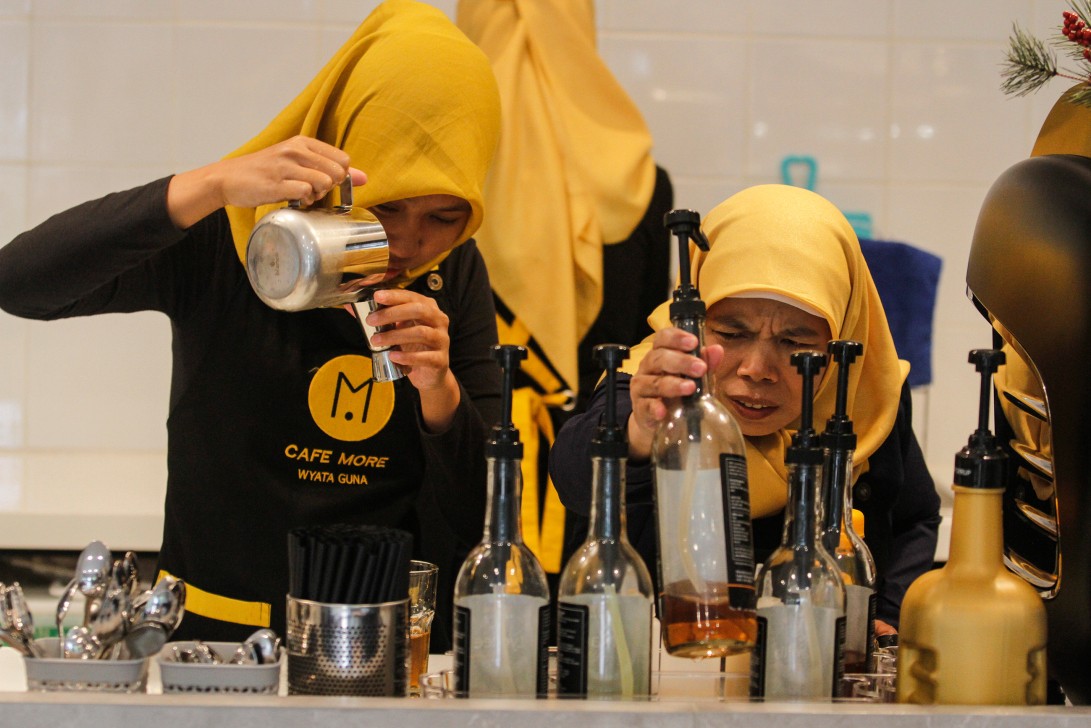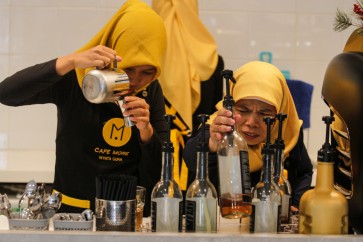Popular Reads
Top Results
Can't find what you're looking for?
View all search resultsPopular Reads
Top Results
Can't find what you're looking for?
View all search resultsCappuccino, mochaccino or espresso? Visually impaired baristas will serve you
“The goal is to help the visually impaired attain independence, especially women,” said Rosmawati, adding that having a cafe staffed with visually impaired baristas was new in Indonesia but was more common in South Korea.
Change text size
Gift Premium Articles
to Anyone
“Each cup you drink creates jobs for the disabled”.
This message is written on a 100 centimeter by 80 centimeter sign displayed at Café More Wyata Guna at the Social Rehabilitation Center for Eye Sensory Disability (BRSPDSN) in Bandung, West Java.
“We have only been open for about three weeks,” said Siti Fatimah Iskandar, 30, a barista at the café. She works there together with two other baristas, both of whom also suffer from low vision like her.
The three work in two shifts from 7 in the morning until 9 in the evening. The first shift is from 7 a.m. until 3 p.m. and the second is from 1 p.m. until 9 p.m.
They are also allowed to have other jobs outside the café as long as it does not interfere with their schedules at the café. Siti, for example, also works helping a blind university student.
“I sometimes help editing or reading,” said Siti, who graduated as part of the first batch of baristas and helps support training for visually impaired people in Indonesia.
Siti said there were six participants in the first batch of the training and seven in the second. All have low vision as required by the training organizer.


















